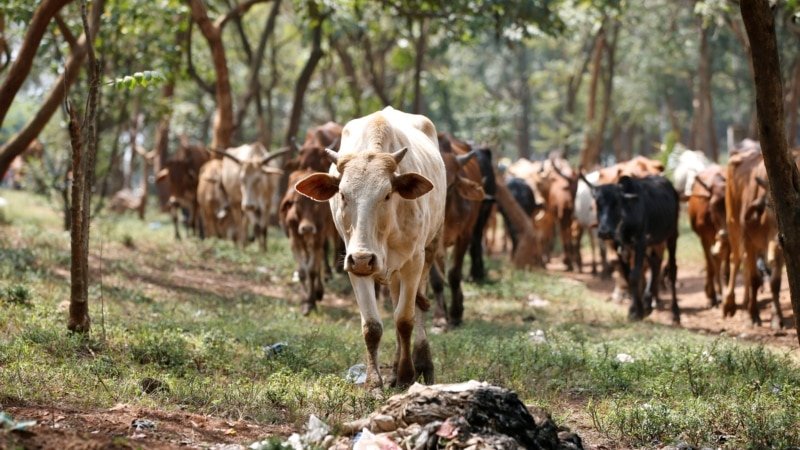
Kenya’s president said on Tuesday that a large-scale livestock vaccination campaign would continue despite fears from some herders and farmers that vaccination would somehow harm their animals.
Kenyan President William Ruto has hit out at those objecting to the agriculture ministry’s livestock vaccination programme, which the ministry says aims to prevent the spread of several diseases and bring livestock up to international standards.
Critics have questioned the effectiveness of the vaccines, and some cattlemen have expressed concerns – without any evidence – that the vaccine program is destined to destroy their herds.
Patrick Torom, a cattle herder in Kenya’s Rift Valley region, said he would not allow his animals to be vaccinated.
“I will not get my animals vaccinated because I will probably compromise the quality of my cows,” he said. There is a cure but the poor probably won’t be able to, so people will bring poverty to Africa.”
Speaking at a goat auction in Baringo County, Ruto said vaccinations would help Kenyan farmers make money – and he criticized those who oppose him.
“I want to promise the people of Kenya that we are going to do this vaccination because our farmers deserve better earnings,” he said. “I want to ask the leaders who have no knowledge, who have no understanding, who have no plan. To save us from their ignorance.”
According to the Ministry of Agriculture and Livestock Development, the vaccination drive targets 22 million cattle and 50 million sheep and goats.
The ministry has assured animal owners that the vaccines are safe and produced locally.
Ruto said people against animal vaccination were preventing livestock owners from accessing international markets for their products.
“Vaccination is about disease control. …You cannot use disinformation and fake news to deprive Kenyans of international markets by discouraging disease control in Kenya,” he said.
Anthrax, foot and mouth disease, Rift Valley fever, African swine fever and rinderpest are some of the diseases that affect livestock in Kenya.
According to the World Health Organization, vaccination of animals helps prevent and control the spread of diseases.
The Agriculture Ministry says only 10% of animals have been vaccinated so far. It said vaccination rates need to be increased to 85% to make livestock products exportable.
Some farmers and experts have blamed the government for the low consumption of vaccines, saying it has failed to deliver clear messages and has allowed politicians to play the role of experts and veterinarians, leading to false messages about the vaccines. Has been promoted.